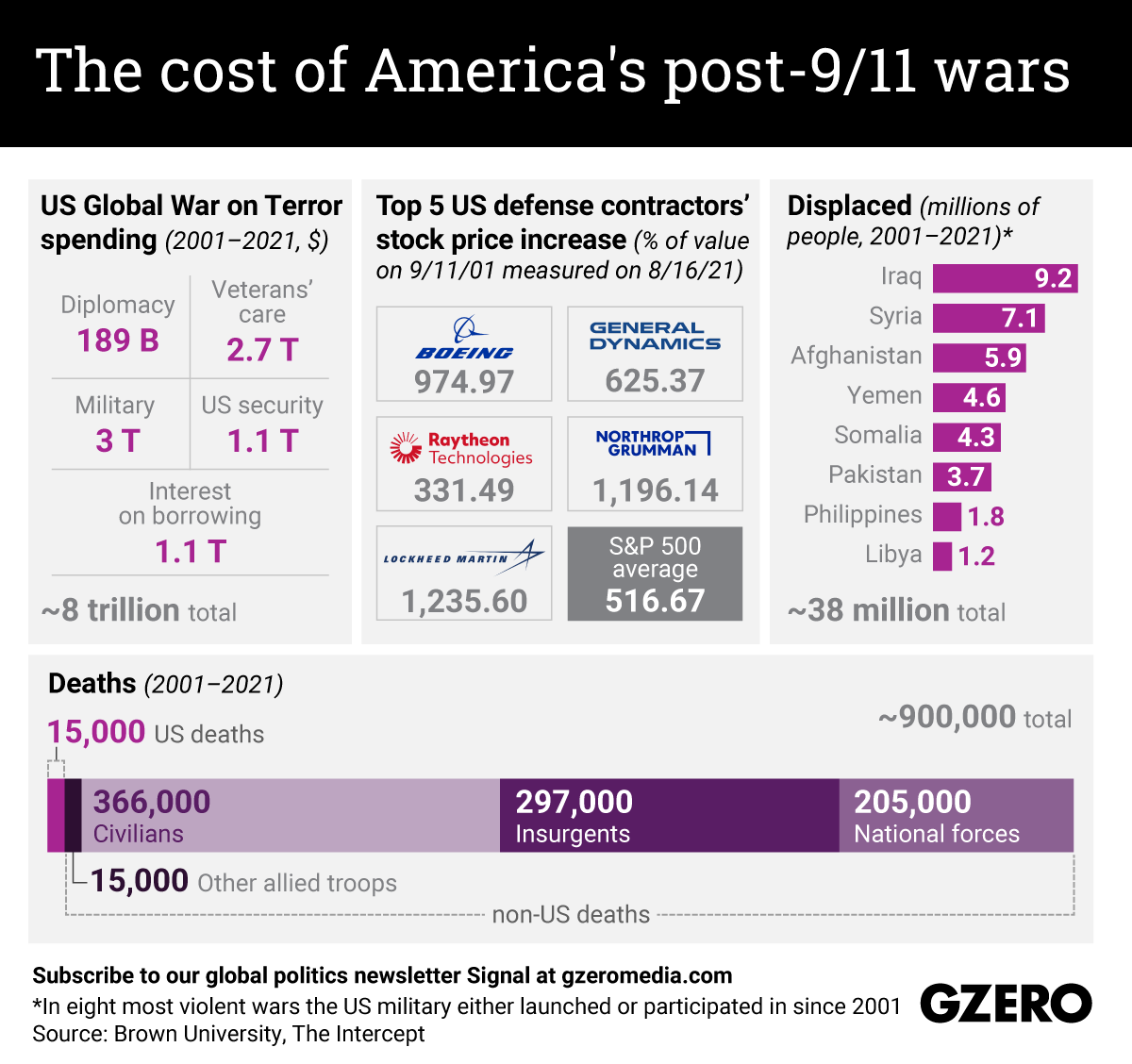The Graphic Truth: The cost of America's post-9/11 wars
In the two decades since 9/11, the US government has spent an astounding $8 trillion on the resulting Global War on Terror, which included invasions of Iraq and Afghanistan and more limited involvement in other conflicts around the Middle East and Asia. The human costs in affected countries are staggering: almost a million dead, and 38 million refugees or internally displaced people. Meanwhile, a select group of US-based arms companies benefited immensely — if you'd invested in them in 2001, you'd have seen a return twice as large as the average for blue-chip firms during that time frame. Here we take a look at US military spending, top US defense contractors' stock prices, death toll, and displaced people in the US-led Global War on Terror.
Editorial note: An earlier version of this graphic incorrectly listed the amount spent on US veterans' care and the breakdown of deaths in the Global War on Terror. We apologize for the errors.
